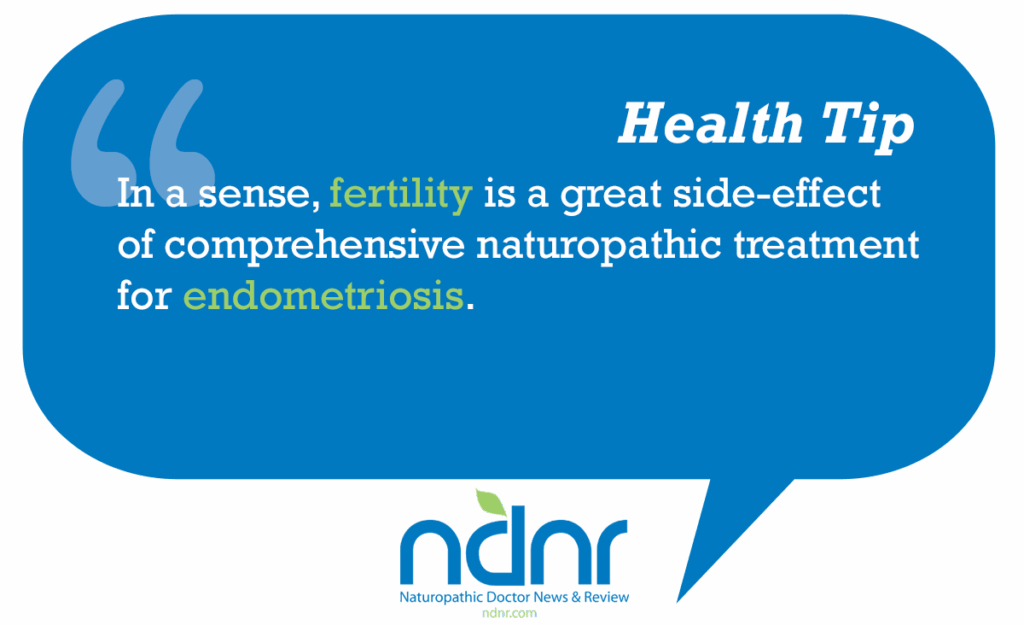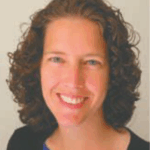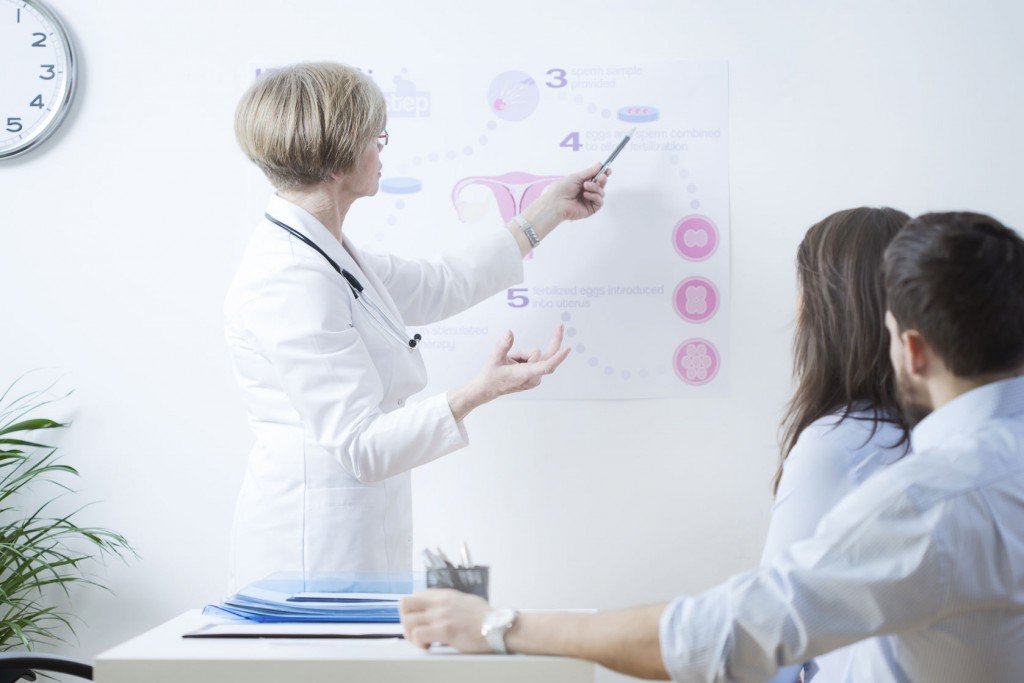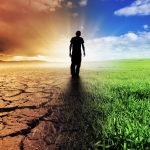Amy Day, ND
Endometriosis, or “endo,” is strongly linked to infertility. It is estimated that about 30% of women with endo struggle with infertility, and at least 30% of female infertility is associated with endo (Ballweg, 1987). The decrease in fertility includes both an inability to conceive and an increase in the rate of miscarriage. It is important, however, to keep in mind that the majority of women with endo are able to conceive and have healthy full-term pregnancies.
 The complexity of endometriosis leaves us with a lack of certainty as to what causes it and why it can lead to decreased fertility. However, there are many probable mechanisms involved. When working with a patient who has endometriosis-related infertility, keep in mind that the same factors that may contribute to endo can also lead to subfertility.
The complexity of endometriosis leaves us with a lack of certainty as to what causes it and why it can lead to decreased fertility. However, there are many probable mechanisms involved. When working with a patient who has endometriosis-related infertility, keep in mind that the same factors that may contribute to endo can also lead to subfertility.
- Hormone Imbalance – Endometriotic implants are stimulated by estrogen, and a high estrogen/low progesterone state is related to luteal phase insufficiency. Many women with endo have imbalances of ovarian, adrenal, and thyroid hormones all of which are significant for fertility.
- Immune System – The immune response is known to be altered in women with endo. This has been seen in the cytokines and prostaglandins around the implants, throughout the pelvic cavity, and inside the uterus (Kolberg, 1997). Keeping inflammation down and minimizing allergies and overactive immunity will increase the chances for healthy ovulation and conception.
- Environmental Toxins – Dioxins, PCBs, pesticides, herbicides, and plastics all have endocrine disrupting effects (Lemonick, 2000). Research has shown that exposure to dioxin can cause endometriosis (Tsutsumi, 2005). Teaching avoidance strategies and supporting detoxification functions will help the endo and increase fertility.
- Adhesions – Scarring in the pelvic cavity can block the proper movement of egg and sperm. Adhesions around the ovary or in the fallopian tubes increase the risk of ectopic pregnancy. Abdominal massage and topical castor oil packs decrease adhesions and assist mobility of the pelvic organs.
- Pain – The physical strain of living with endometriosis can be very challenging. Sadly, dyspareunia makes intercourse very difficult for some women with endo, which has obvious implications for fertility.
- Stress – Both endo and infertility can be quite debilitating and stress only makes them worse. The monthly roller coaster of high hopes followed by deep despair takes its toll. Even while hope runs high that “maybe next month…” I recommend that couples begin to discuss how much time and money to invest, how much they can endure physically, and how far to go with medical treatments. They can also consider their feelings about alternatives such as surrogacy, adoption, and childfree living. By facing these issues early on, they can navigate their infertility with more control and confidence.
- Medical Treatment – To manage the pain of endometriosis, many women opt for medical treatment. Most medical therapies for endo involve a disruption of the ovulatory cycle, which eliminates the ability to conceive. When women learn to manage their symptoms with natural therapies, they are able to cycle and actually increase their chances of conception.
In endometriosis-related infertility, I recommend primarily setting goals about decreasing pain, having healthy cycles, and improving overall health. By addressing these factors, you will not only support the patient’s well-being and long-term health, but will also increase the chances of a successful pregnancy. In a sense, fertility is a great side effect of comprehensive naturopathic treatment for endometriosis.
References
Ballweg ML: Overcoming Endometriosis, Congdon & Weed, 1987.
Kolberg R: Endometriosis enigma: do the cells themselves hold the crucial clues? J NIH Res 9:23-25, 1997.
Lemonick MD: Teens before their time, Time 30 Oct 2000.
Tsutsumi O: Assessment of human contamination of estrogenic endocrine-disrupting chemicals and their risk for human reproduction, J Steroid Biochem Mol Biol 93:2-5, 2005, pp 325-30.
Highly Recommended Reading:
Mills DS, Vernon M: Endometriosis: A Key to Healing and Fertility Through Nutrition, Thorsons, 2002.
 Amy Day, ND, received her doctorate of naturopathic medicine from National College of Naturopathic Medicine in Portland, Oregon, and was among the first NDs to be licensed in California. Dr. Day is in private practice in San Francisco at SOMA Acupuncture and Natural Health Clinic and is a Western medicine faculty member at the American College of Traditional Chinese Medicine. She currently serves on the Board of Directors for the California Naturopathic Doctors Association and is a physician member of the Endometriosis Association.
Amy Day, ND, received her doctorate of naturopathic medicine from National College of Naturopathic Medicine in Portland, Oregon, and was among the first NDs to be licensed in California. Dr. Day is in private practice in San Francisco at SOMA Acupuncture and Natural Health Clinic and is a Western medicine faculty member at the American College of Traditional Chinese Medicine. She currently serves on the Board of Directors for the California Naturopathic Doctors Association and is a physician member of the Endometriosis Association.





